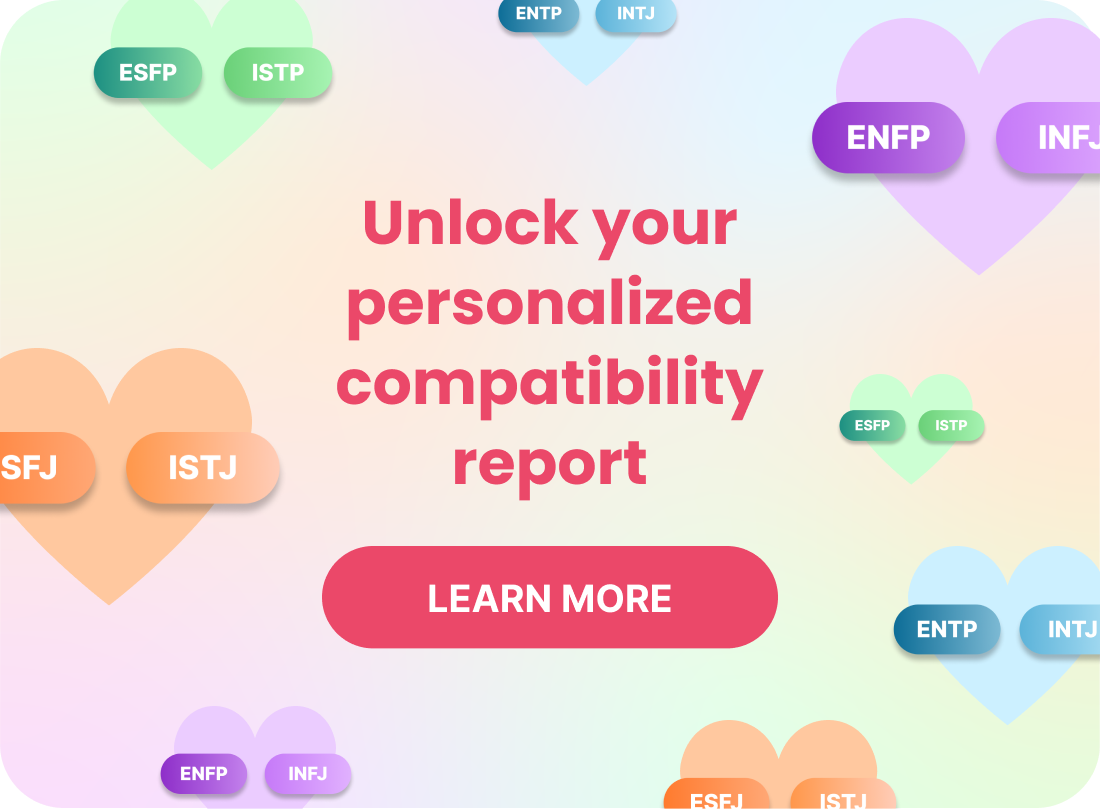13 Nuances of an Introvert Relationship
If you have experiences with introversion, say you have dated an introvert, or you are one yourself, you may have noticed certain aspects that are unique to introvert relationships. It’s not just that introverts like to keep to themselves—there are many more subtle nuances that come with being in a relationship with an introvert.

If you have experiences with introversion, say you have dated an introvert, or you are one yourself, you may have noticed certain aspects that are unique to introvert relationships. It’s not just that introverts like to keep to themselves—there are many more subtle nuances that come with being in a relationship with an introvert.
These nuances are exactly what we’re going to dive into today.
13 nuances of an introvert relationship
In a world that typically celebrates extroverted traits, introverted relationships are less understood. Extroverts are naturally more open, while introverts tend to be more contained, and this alone means that extroverts are more likely to talk about their relationships. But fear not, for we are here to shed some light on the elusive introvert relationship. As an introvert myself, I can relate to the following 13 nuances of an introvert relationship.
1. Alone time is key.
Introverts recharge through alone time and need it to re-center themselves. This alone time isn’t a reflection of our commitment or feelings towards our partner but rather a way for us to rejuvenate and maintain our emotional health. When we don’t get enough alone time, it can start to feel like we are suffocating and not being true to ourselves.
We might also become easily irritable and overwhelmed. Extroverted partners can take this personally if they don’t understand our need for alone time, so it’s important for them to be aware that it’s an innate part of who we are and not a reflection on them.
2. Silence is golden.
Introverts are content with silence. We often get lost in our own thoughts and don’t tend to feel a need to fill the air with words. Most introverts enjoy peaceful silence. This can be a great asset in introvert relationships as it allows both partners to sit with their thoughts without feeling pressure to talk for the sake of it.
Introverts are more sensitive to external stimuli, so quiet environments are often preferred. However, our silence can sometimes be misinterpreted as us being distant or not interested when this generally isn’t our intention at all.
3. Quality over quantity.
When it comes to social interactions, introverts tend to be selective about who they spend time with. After all, we have limited social energy, so we want to make it count. This means that when we do spend time with someone, we want to make the most of it. While extroverts can be more open to large crowds and frequent social events, introverts prefer quality over quantity.
We feel drained after too much stimulation and generally find small gatherings or one-on-one activities most appealing. That isn’t to say we don’t enjoy a good party every now and again—it’s just that we need plenty of time to recover afterward.
4. Slower to open up.
Introverts are known for being more private than their extroverted counterparts. We are more cautious about who we share our inner thoughts and feelings with, preferring to observe and understand the other person first.
This careful approach helps us determine if someone is trustworthy, and we don’t like to rush this process. Our slower pace of opening up isn’t a sign that we aren’t interested—it’s just that we know it takes time to see someone’s true colors.
5. Intentional communication style.
Introverts tend to communicate differently than extroverts. For starters, our words are usually carefully considered before they leave our mouths. This might make it look like we’re slow to respond or not engaged when, in reality, it just takes us longer to form our thoughts.
We process our thoughts internally, which means we like to reflect before expressing them. This stems from a desire for everything we say to be aligned with our inner world. That doesn’t mean we won’t contribute—it’s just that we might take a little longer to respond. The good news is that you won’t usually find us talking just because we like the sound of our own voices.
6. Value meaningful connections.
Introverts value deep connections full stop, particularly with their partners. We don’t often find people who understand us on a deep level, so when we do, it’s very special to us. Surface-level interactions that don’t lead anywhere don’t appeal to us because they drain our social battery without giving us anything in return.
On the other hand, meaningful conversations that lead to a closer connection are something we greatly appreciate and look for in any introvert relationship. While it can take us a while to let our guard down, we’ll greatly treasure that bond once we welcome you in.

7. Active listening.
Introverts are often naturals at listening attentively. We genuinely enjoy hearing other people’s perspectives, and if it’s someone we care about, we will want to understand how their mind works. This can make our partners feel valued, understood, and respected, all of which are essential elements of a healthy relationship.
On top of that, actively listening creates a safe space for open communication. When we feel genuinely heard and understood in an introvert relationship, we are more likely to express our thoughts and feelings honestly. This open communication can lead to greater trust and intimacy, strengthening the bond between the partners.
8. Independent nature.
Introverts typically have a strong sense of autonomy and independence, which extends to their relationships. We often enjoy solo activities, whether practicing our hobbies or going for a walk alone. We don’t need to be with people 24/7 to feel fulfilled. In fact, this can be suffocating and may lead to resentment. To feel our best, we need space to explore our interests, process our thoughts, and simply recharge.
That’s not to say that we don’t love spending quality time with our partners—we definitely do. It’s just that we need a balance of togetherness and independence in a relationship. Encouraging and supporting our independent pursuits can help us thrive, which means we are better able to bring our best selves to the relationship.
9. Low-key outings.
Introverts prefer quieter environments where they can focus on having a conversation without feeling overwhelmed by noise and people. Loud bars and clubs aren’t our ideal environments to visit on a regular basis because that type of stimulation can be draining. Instead, we might prefer a quieter cafe, an outdoor spot, or inviting someone over for dinner and a movie.
It’s not that we don’t enjoy going out and socializing—it’s just that finding the right environment makes all the difference. We might be able to handle a few hours in a high-energy environment from time to time, but it’s not something we can do every day, and we’ll need to recharge afterward.
10. Quiet companionship.
Introverts often find comfort in silent togetherness. They tend to appreciate shared activities like reading a book, watching movies, or simply enjoying each other’s presence without feeling the need to engage in constant conversation. Even if words aren’t being exchanged, situations like this can help to strengthen the bond between two people.
Sitting in silence with someone we trust on a deep level can bring us a deep sense of peace and understanding. So know that even if we aren’t talking much, we may well be feeling closer than ever. This introvert relationship nuance can be difficult to understand for some extroverts who don’t function similarly. Quality time doesn’t have to be chatty—sometimes, a comfortable silence can speak louder than words.
11. Happiest out of the spotlight.
Introverts enjoy socializing for a certain amount of time when it’s with people they like, but they don’t often seek the spotlight. We are quite content with staying in the background and prefer to observe and take it all in. Being the life and soul of a party isn’t something that we usually strive for, so there’s no need to worry if we aren’t the most outgoing person in the room.
We don’t need to be the center of attention constantly, and if our partner is more outgoing, we can actually feel quite relieved to stand back and let them have the limelight. This is partly why we pick up on nuances—we are happy sitting back and observing without feeling the need to be noticed.

12. Mindful social planning.
As introverts grow as people, they often become more mindful of their energy levels. This means that we become better planners for social events so that we don’t overexert ourselves. When we get to a certain age and have experienced a wide range of social dynamics, we have a good handle on what situations will energize us and which will deplete us. As such, we plan our social engagements accordingly. If we are seeing a friend on a Monday night, we might keep Tuesday and Wednesday free to give ourselves time to recharge. This helps us enjoy our social engagements without feeling exhausted afterward.
Of course, there are exceptions to the rule, but this is something we generally do to ensure our social battery stays charged. It’s important to us that our partner accepts that we won’t be going out every night of the week and that they don’t judge us for it. If you are in an introvert relationship, it can also help to discuss and plan social events in advance so that you can manage your energy levels effectively.
13. Calming presence.
Introverts often bring a calming presence to relationships. We have a quieter nature and typically avoid unnecessary drama, preferring to resolve conflicts in a measured manner. This ability to maintain tranquility, even in turbulent situations, can provide a comforting sense of stability in a relationship. While I can’t guarantee that every introvert relationship will be drama-free, this is certainly a trend I have noticed in many introvert relationships.
Our low-key attitude can be reassuring and help to create a sense of ease. In particular, if you are the kind of person who tends to act in a more impulsive, dramatic manner, your introverted partner can help to provide balance and perspective.
How to understand an introverted partner
So, we have shared 13 nuances of an introvert relationship. Knowing these traits can help you better understand and appreciate your introverted partner. If you put these points into practice, you’ll have a great starting point for creating a deep, lasting bond.
But that isn’t the end of the story. Every relationship is unique, and each person brings their own needs and preferences to the table. So, while these nuances can give you a good overview of how an introvert relationship might work, it is important to remember that your partner’s needs and feelings may differ in some ways from the ones mentioned here.
As always in relationships, communication is key. Be patient and provide a safe, non-judgmental space for them to express themselves. Remember, they might take a little longer to form their thoughts and feelings into words, but this isn’t a sign of disinterest. Listen attentively when they share their inner world with you, and avoid interrupting or rushing them. This will show them that you value their perspective and are genuinely interested in understanding them.
It goes without saying that this goes both ways—you should strive to get your needs met within the relationship. Just because someone is an introvert doesn’t mean they should always prioritize their needs over everyone else’s. Relationships often involve compromise, so talk openly and honestly about what works for both of you.
Final thoughts on introvert relationships
In essence, introvert relationships have the ability to create an oasis of calm and serenity in a world that can often be overwhelming. There may be several nuances to the relationship dynamic, but if you take the time to understand your introverted partner and honor their needs, they will be deeply grateful. I can guarantee it. Like everyone, we want to feel understood and accepted for who we are, which might take a little more effort when it comes to an introvert relationship.
As we conclude this blog post, let us celebrate the diversity of relationships and honor the intricacies that make each one special. Intimacy and connection come in many forms, and if we embrace those differences, we can create a kinder, more accepting world for everyone.
Last but not least, if you enjoyed this blog, you might also like our post about introvert dating.




